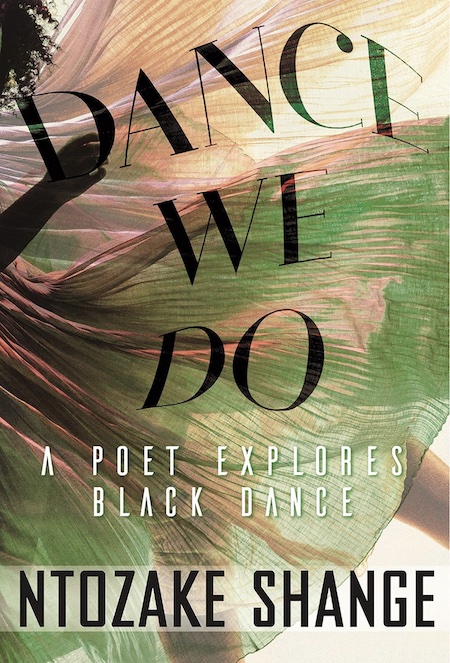Dance We Do
In her first posthumous work, the revered poet crafts a personal history of Black dance and captures the careers of legendary dancers along with her own rhythmic beginnings.
Many learned of Ntozake Shange’s ability to blend movement with words when her acclaimed choreopoem for colored girls who have considered suicide/when the rainbow is enuf made its way to Broadway in 1976, eventually winning an Obie Award the following year. But before she found fame as a writer, poet, performer, dancer, and storyteller, she was an untrained student who found her footing in others’ classrooms. Dance We Do is a tribute to those who taught her and her passion for rhythm, movement, and dance.
After 20 years of research, writing, and devotion, Ntozake Shange tells her history of Black dance through a series of portraits of the dancers who trained her, moved with her, and inspired her to share the power of the Black body with her audience. Shange celebrates and honors the contributions of the often unrecognized pioneers who continued the path Katherine Dunham paved through the twentieth century. Dance We Do features a stunning photo insert along with personal interviews with Mickey Davidson, Halifu Osumare, Camille Brown, and Dianne McIntyre. In what is now one of her final works, Ntozake Shange welcomes the reader into the world she loved best.
Praise & Reviews
“Remarkable—provoking—insightful…A must-read for those interested in identifying and understanding where much of American dance concepts today are derived.”—Otis Sallid, producer, director, and choreographer
“Examines the relationships of movement and words and of ‘natchel’ to formal dance…her subjects, renowned and lesser-known Black teachers and choreographers, offer revelations of their own.”—Jennifer Dunning, author of Alvin Ailey: A Life in Dance
“To read Dance We Do is to learn not only what Black dance means, why Black bodies matter, but how. [It] makes its meanings elegantly, fearlessly, with the endless precision of Blackness itself: a full vocabulary of bodies and lives, writing rhythms that out-move time.”—Mecca Jamilah Sullivan, PhD, author of Blue Talk and Love

